Neville Goddard – Blake on Religion
When you are discussing Blake you are discussing one of the greatest spiritual giants of all time. You might just as well discuss St. Paul, for they had the identical visions, the vision of reality. Tonight we can cover only a portion of his gift to the world. In his “Auguries of Innocence” he says:
“To see a World in a Grain of Sand And a Heaven in a Wild Flower, Hold Infinity in the palm of your hand And Eternity in an hour.”
What is the sequence? The most inanimate thing in the world, a grain [of] sand, and in it to see a world. Then he moves to the first animation, a flower; and then to see harmony, which is Heaven – to see a “Heaven in a Wild Flower.” And now he comes to space: “Hold Infinity in the palm of your hand.” And then to time: “And Eternity in an hour.”
He moves on now to the bird world, to show us the relationship of the whole vast world, the unity of the world, that we are all actively related. That you can’t disturb anything at this moment in any way and not actually affect the whole.
“A Robin Red breast in a Cage Puts all Heaven in a Rage.”
We think we can catch the little bird and cage it for our amusement, that which should be set free. He said:
“How do you know but ev’ry Bird that cuts the airy way, Is an immense world of delight, clos’d by your senses five?” (“Marriage of Heaven and Hell”)
So, the little
“Robin Red breast in a Cage Puts all Heaven in a Rage. A dove house fill’d with doves and Pigeons Shudders Hell thro’ all its regions.”
Then he moves on to the next state, in what the world would call evolution, but he doesn’t call it that. Now into another aspect of the animal world:
“A dog starv’d at his Master’s Gate Predicts the ruin of the State. A Horse misus’d upon the Road Calls to Heaven for Human blood.” (“Auguries of Innocence”)
And he takes the stages right through. You will read it as you go along. (“Annotations to Berkeley’s Siris” in his Pickering MS.) Here is this mental giant who saw the complete relationship of all of us. So I think I could be isolated were I in a dungeon and I thought of you – my thought is affecting the entire universe. I thought of you with envy, or with hate, or with love, whatever the thought was as I conjured you in my mind’s eye and represented to myself as I want you to be, whether it is in hate or in love, I am affecting the whole vast world. And if I believe in the reality of what I have done, it will come to pass. And because we are all one, all interwoven, I will use you without your consent, your knowledge, to fulfill that which I have imagined at that moment.
Then he makes this statement:
“What seems to Be, Is, To those to whomIt seems to Be, and is productive of the most dreadful Consequences to those to whom it seems to be, even of Torments, Despair, Eternal Death; but the Divine Mercy Steps beyond and Redeems Man in the Body of Jesus.” (“Jerusalem,” Plate 36)
He steps beyond. Because of this principle man could be lost forever, not knowing what he is doing, but “Divine Mercy Steps beyond and Redeems Man in the Body of Jesus.” “God is Jesus” and we are but members in this divine body, therefore, only one name – we are he. So Blake made this statement: “Man is all Imagination. God is Man and exists in us and we in him.” (“Annotations to Berkeley’s Siris”)
“The Eternal Body of Man is The Imagination, that is, God himself, The Divine Body, Jesus; we are his Members.” (“The Laocoön”)
He makes every world, and now he asks us to join with him in putting this to the test. When you read his works from beginning to end, he never waivers from this premise. One thing he asks us all to do and to always bear in mind at every moment in time – to distinguish between the immortal man, which he saw… He said: “When I first did distinguish the immortal man that cannot die. . . that immortal man was Imagination.” Imagination has a body and he describes that body when he begs us to always discriminate between this immortal man — your wonderful human Imagination —and the state into which it has fallen.
And so, you may be this night in the state of love (I hope you are), the state of tenderness, the state of affluence. I don’t know, but you may not be. You may be in the opposite state. But were you in the opposite state, or some friend of yours, or some total stranger in the opposite state, he begs you, he begs all of us, to always bear in mind the distinction between the occupant of the state and the state, and lift everyone out of the state if it is an unlovely
state. For man is like a pilgrim passing through states, as though I pass through the states of this country. If this night I pass through Chicago, Chicago remains, but I — the pilgrim — pass on. If I pass through any state — the state of poverty, when I leave poverty it doesn’t really dissolve, it hasn’t disappeared. I left it for anyone to enter. I hope they will avoid it, but anyone may fall into it or deliberately go into it by feeling sorry for himself, feeling unwanted. And so he tells us of these enormous states, infinite states in the world. That everything possible that could happen to man is already created in the form of states. When man enters the state, the state unfolds because he — the operant power — has entered the state, and unknowingly he simply unfolds the state. If the state is one of wealth, in a way he does not know everyone in the world that can aid the unfolding of that state must aid it. If he enters any state — the state of poverty — though at the moment when he enters it he may have everything in the world, in no time he will grow the fruits of poverty in this world, for he is in the state of poverty. But he, the occupant of the state, is neither rich or poor.
So, Blake calls upon everyone to bear this in mind constantly and forgive every being in the world. For he says: “Mutual forgiveness of each sin, such are the Gates into Heaven in our world.” If I could only remember every moment of time when I see someone I dislike, that he is only in a state. That is why I dislike him – I dislike the state. I identify him with the state I dislike, but I think it is the occupant. It is not the occupant. He could come out at any moment in time, or I could get him out if I pulled him out and put him into another state, and I wouldn’t dislike him. If I bear this in mind, knowing my power to pull him out of the state I could save him, at least temporarily, until he is actually redeemed by this “Divine Mercy that steps beyond and Redeems Man in the Body of Jesus.” And that is a true vision. We are “Redeemed in the Body of Jesus.” The day will come when you actually will be pulled into his presence, for it is he, divine mercy, that steps beyond, in spite of what we have done, and pulls us right into his presence.
Then we are asked a very simple question. The world will answer correctly or he would not have told us. It is automatically done — we are divinely prompted what to answer, what to say when the question is asked. We cannot make a mistake, for we are actually prompted from the depths of our soul and we answer. At that very moment he embraces us and we become one with him – Jesus. We are fused into the body of Jesus.
And you say: “Is Jesus a man?” Yes, he is a man. So Blake makes the statement:
“If Thou Humblest Thyself, Thou humblest Me; Thou also dwell’st in Eternity. Thou art a Man, God is no more, Thy own Humanity learn to adore.” (“Everlasting Gospel”)
So when you stand in his presence you are standing in the presence of Man and it is Infinite Man. It is Jesus, and you are actually saved in the body of Jesus, because he embraces you and you are locked in his body, one with his body. You are the body. You aren’t locked in the sense that you disappear — you are that being. You become one with Jesus, yet you do not lose your identity. No loss of identity and yet one with God, for God is Jesus. Now this is Blake’s teaching and I have proven much of it to my own satisfaction by my own mystical experiences.
Now he comes to discuss the story of the “Virginity of the Virgin.” For are we not told in Isaiah 7:14: “Therefore the Lord himself will give you a sign. Behold, a virgin shall conceive and bear a son, and shall call his name Immanuel.” The word Immanuel means “God is with us.” Listen to it carefully: “She will conceive and bear a son, and call his name Immanuel.” The child will be given the name as a token. The child is not the great event; the child will be given a name and is the token of deliverance. The child himself is not the deliverer. The child is simply the sign of an event taking place. Now Blake writes one single little verse and he speaks of it as the “Virginity of the Virgin.” You are the virgin, whether you be male or female, I am the virgin, we are all the virgin. I didn’t know what was happening to me any more than you will know what is happening to you. He puts it in four little lines:
“Whate’er is done to her she cannot know, And if you’ll ask her she will swear it so. Whether ‘tis good or evil none’s to blame: No one can take the pride, no one the shame.” (“Poems from the Note-book”) [On the virginity of the Virgin Mary and Johanna Southcott]
So we said in the story: “How can this thing be, seeing that I know not a man?” And through the centuries thousands of columns have been written condemning the act, for it was out of wedlock and they take it on this level. It is not on this level. You are the bride of God, as told us in Isaiah 54:5: “For your Maker is your husband, the Lord of hosts is his name.” So the one who made me is going to sire me, without my knowledge, without my consent. So
“Whate’er is done to me I cannot know, And if you’ll ask me I will swear it so Whether it is good or evil, none’s to blame: No one can take the pride, no one the shame.”
No one can take the pride when I confess openly I gave birth to a child out of wedlock. For no one sired that child and no one can claim he sired it. Now whether it was a shameful thing to perform — well, the world must judge. Whether it be good or evil, well, who knows? But one thing I know: no one can claim they did it, therefore “No one can take the pride, no one the shame” — if it’s shame. So the prophecy was made and he writes in four little lines the story of the “Virginity of the Virgin.”
He is telling every being in the world that they are that virgin. And you will be sired by the Holy Spirit, and you will produce in visible form an infant, just as told us in the Gospel. Having produced it you stand amazed because how could you produce it in such an unnatural way? It doesn’t happen in a natural way. Therefore, you were the virgin who conceived unknowingly, for she said: “How can I conceive, how can I have a child seeing I know not a man?” Then you are told the Holy Spirit will come upon you and the child will be the child of God. But it will only symbolize an event that is taking place, and you will be the son of God. In that act you were the child, who symbolized your acceptance. But the son of God is also God the son, and the son of God is made to say: “I and my Father are one.”
Blake saw the whole vision so perfectly, so clearly, and told us in his fabulous works. Said he of the Bible: “I know of no other Christianity and no other Gospel than the liberty both of mind and body to exercise the Divine Arts of Imagination. Imagination the real and eternal world into which we shall all go after the death of this vegetable mortal body.” He would accept no other form of Christianity. And he said: “All ritual, all creeds,” everything in the form of a ritual “was anti-Christ.” No religion means by definition a time, devotion to the most exalted reality that one has experienced. But religion as practiced is simply artifice, creed, ceremony, confession, and all outward show, and Blake would have none of it. The whole thing to him was anti-Christian, because to him the whole thing was from within, something the individual experienced that no one by argument could shake.
Years later, another brilliant mind, William James, made this observation and wrote it in a letter (not in a book) to his son. The son allowed it to be published in 1920 in The Atlantic Monthly. In this letter, James said: “The mother seed, the fountain-head of religion, begins in the mystical experience of the individual. All theology, all ecclestiastism, are secondary growth, superimposed. These experiences belong to a region that is deeper, wiser and more practical than that which the intellect inhabits. For this they are indestructible by intellectual arguments and criticism.” Blake would have endorsed that one hundred per cent.
You couldn’t disturb him. They called him a mad person. Even to this very day they speak of him as one who was unbalanced. He confessed in one of his letters that William Cowper [came to him. Cowper was] one of the great poets and himself considered one of the six greatest of all writers of letters in the English tongue. He was a contemporary. He died in 1800, Blake in 1827. He was much older than Blake, and Blake in his letter did not say whether Cowper came to him while he walked this earth or after he made his exit from this earth, because Blake could not conceive of death in any sense of the word — nothing died, all things survived. He said: “Cowper came to me and said to me: ‘Would that I were mad always, I cannot rest. Would you not make me truly mad?’ Then he said: ‘Look at you, you are healthy, and yet you are more mad than all of us. Would that I were as mad. I cannot rest until I am as mad as you are.’” He claimed that was what Cowper said to him. That he would now be a “refugee from unbelief.”
We think we are sane when we believe in the evidences of the senses, when we believe in some mathematical state that proves itself in performance. He spoke of Blake as one who was a “real refugee from unbelief.” I tell you a fantastic story and you don’t believe it. Would that you would believe! Believe it, though reason would deny it and your senses deny it. Just to believe it and become a refugee from unbelief, because true religion cannot be analyzed. You can’t rationalize it; it is based upon these mystical experiences in the depths of the soul.
Blake said of the Bible: “The entire Hebrew Bible” . . . he did not mention a few of the works. He didn’t mention Ruth, Nehemiah, and things of that sort, but he said: “The Five books of the Decalogue; the books of Joshua and Judges, Samuel , a double book, and Kings , a double book, the Psalms and Prophets, The Four-fold Gospel, and the Revelations everlasting.” (“Jerusalem,” Plate 48) He did not name the prophets, which he called the latter prophets (also the major): Isaiah, Jeremiah, and Ezekiel. He said these are true vision. He did not mention the Epistles, but he said the four Gospels, Revelation, and the Hebrew Bible are eternal visions of what really exists. He saw it so clearly, that all these characters are personifications of eternal states and communed with these states, for when you commune with them they seem as real as you are. But they are personifications of God’s infinite mind; every aspect of his mind is personified. You are not an aspect of the mind, something entirely different. You are one with God. “Man is All Imagination. God is man and exists in us and we in him.” (“Annotations to Berkeley’s Siris”)
“The Eternal Body of Man is The Imagination, that is God himself; The Divine Body Jesus; we are his Members” — part of the body of Jesus, and because there is only one name, we are he. So we pass through a process, a simple process which you can’t evoke, you can’t hasten it. But when you least expect it, divine mercy steps beyond and redeems man right into the body of Jesus. Then he passes through these stages, where he is born from above, where suddenly he beholds the divine Son [David] as his son; then the great woven structure of the body, the temple, is torn from top to bottom and he ascends to be one around this infinite throne of Jesus, who is God.
I actually believe it. I can’t prove it to you and I can’t take you with me into that moment of time where I experienced it. I can only tell you I have experienced it and ask you to believe it and share with me in belief, that you yourself may become a refugee from unbelief. For the man who cannot leave what he can touch with his hands and rationalize, cannot believe. And this is something you are called upon, although you have not seen it. “Blessed is the man who has not seen and still believes.” That is how the Gospel of John 20:29 ends. Those who heard about it, who would eventually experience it, like Job (42:5) — he said: “I have heard of thee with the hearing of the ear but now my eye sees thee.” He heard about it and then came the experience, and he saw exactly what Blake is talking about, because Blake saw it.
I ask you to believe with me and take his works. I wouldn’t attempt to interpret for you. I have so many commentaries of Blake and they cost much more than all of Blake’s works put together, any one of them. You can buy Blake for $5.00, all this including his letters. I have invested in Blake’s works at home close to a thousand dollars in commentaries, and no two agree as to what Blake means by his fantastic experiences. But I bought all these commentaries of Blake before I had the experience. I could have saved a thousand dollars. I don’t regret it. I have them at home and there they stand in my library. Three volumes I paid $100.00 for, published by a dealer just back from England. These are rare volumes. Others he made me pay $55.00 and $65.00 for single volumes. And I have the whole of Blake in a nonesuch volume.
So you read him and all of a sudden you see exactly what he is trying to tell you, because you had a similar experience. Then comes the unfolding of the flower within you, the tree, and you have the experience, the same thing because all will have the identical experience, colored a little bit differently because we are all unique in God’s eye. So we have the same experience as we unfold on this great tree of life. Just think of it. If I can tell you what I would feel from Blake. Someone said: “He was the last civilized man.” Well, I hope not, but that is what was said of him. Blake had no venom in him, no impulse to hurt. He didn’t have to restrain the impulse; being all virtuous he acted from impulse and not from rules. He was simply a virtuous man in the sense that he loved people.
If I would take a summary of Blake and tell you what I get out of it, I would say tell your children while they are little tots and teach them: never unnecessarily hurt a creature or desecrate a flower. That is the beginning of reverence, and reverence is the beginning of wisdom. If you couldn’t hurt a flower, you couldn’t desecrate it. You see little children — not knowing what they are doing but in the presence of adults who should know better — and they will take a lovely rose and tear it and desecrate it. If the parent at that moment (or the adult, whether he is the parent or not) would stop the child and explain not at any time to unnecessarily hurt a creature, take the wings from a butterfly. I did it myself. To take the wings from a fly, to take the wings from something else. No reason for it, but I did it as a child. But I did it when possibly there was no one around like my father or mother to stop me in the act. But I know today from experience: you can take a child in its youth, in its infancy, teach it never unnecessarily to hurt a creature or desecrate a flower. That would be to it the beginning of reverence, and reverence is the beginning of wisdom.
Take George Washington Carver, who would take a flower in his hands and talk to it. The man couldn’t hurt it, he was incapable of hurt. He would talk to a sick flower and ask the flower what was wrong with it and try to tell him, that he in turn may bring in the solution to that rose bush — which he did. And he gave us, because he couldn’t hurt, this synthetic world of ours. He took the ordinary little peanut. He talked to the peanut and wondered “What are you for why did God make you? He made you for a purpose.” And then the peanut communed with George Washington Carver. And today we have 300 by-products from the peanut and hundreds of by-products from the southern pines, and from other things. I heard that gentleman the year he died. Just before he died he spoke in New York City at the forum held every year by the Herald Tribune, always held at the old Waldorf Astoria. He said (and I heard him, I saw him) that: “This concern about tomorrow’s not being able to feed the world. From the southern states of this country, forget the northern states, the southern states, we could feed the entire world, and clothe the entire world from the by-products. What we could extract from the southern pine and the peanut and all things, the synthetic world.” (He called it “the synthetic world.”)
Today you can go into a store and they brag about the synthetic garments. They call it Dacron or some other name and tell you how much better it is than the so-called natural thing that you would normally wear. All these are synthetic garments and they claim they are better in feeling, lasting wear, and everything else. All that goes back to a man who couldn’t hurt. And he was born a slave (I think he was sold for a horse or something). So we have to redeem him. Here was a man born into slavery who couldn’t hurt, and he is one of the mental, spiritual giants of the world. If you met him beyond the grave you would see a glorious being like a Blake, because he couldn’t hurt.
So I would say to everyone here who is in contact with tomorrow’s children: start it. If you start and tell the children never hurt unnecessarily. By that I mean if a horse breaks its foot then you have to destroy it. You can’t mend it and the merciful thing to do would be to blow its brains out. That would be a merciful act, but then you would do it not unnecessarily. Blake said:
“A Horse misus’d upon the Road Calls to Heaven for Human blood. A dog starv’d at his Master’s Gate Predicts the ruin of the State A Robin Red breast in a Cage Puts all Heaven in a Rage.”
To take this wonderful thing and cage it for your own amusement when it should cut the airy way. And then he says:
“A Skylark wounded in the wing, A Cherubim does cease to sing.”
You wouldn’t think a cherub, one with the seraphim around the throne of God, would — at that very moment when we wound the skylark in its wing — would be silent. But in the inter-related world, all things by a law divine in one another’s being mingle. So you could not wound a skylark in the wing and expect a cherubim to continue to sing. All of a sudden things come to an end by our misuse of this fantastic power that is ours. For being all imagination, as we misuse the power that is imagination we cause cherubim to become silent. We cause the whole of heaven to cry out when we cage something that should be set loose and free in this world.
But you start, and I am quite sure it wouldn’t take more than one generation, if the world would believe it, if you start it in the home with children. Take them into the garden and let them see and then watch their reactions. Some may be more violent and tear it off, but stop them right there. Don’t hit them, just stop them and explain to them that it is a creation of God — the one who made the stars made this for your enjoyment, not for your destruction — and explain they should not desecrate the flower. Then if you see them taking off the wings of the butterfly, because they are human that way, explain they should never unnecessarily hurt a creature. They would believe it, they trust you, and then suddenly that’s part of their structure. They couldn’t violate that conditioned mind. Why, it wouldn’t take any time to really become a world like a Blake, and what a world that would be!
So I say to you: Blake, read him. I could talk about him from now to the end of time and never exhaust him. He lived to be seventy years old. He never went to school. His visions began at four, and he thanked his father for not sending him to school to be flogged into memorizing the works of a fool. Even in today’s paper, the New York Times, a science editor wrote the story of a man’s new concept of the universe – radical departure from what was held last year. Well, this is not final you know. This will be a radical departure from what it will be called next year, and that is man’s concept. Whether the thing is really expanding to the limit of complete explosion, or whether it is like a breath — where it will go to a certain point and then once more begin to contract, taking unnumbered trillions of years — they don’t know and they hope to find it out through telescopes. So they are experimenting through the telescope to the mathematical concept. But Blake made this observation:
“God is not a Mathematical Diagram.” (“Annotations to Berkeley’s Siris”)
Not in eternity will you find God as a mathematical diagram. When you find him you’ll find him as man. So he said:
“God Appears and God is Light To those poor Souls who dwell in Night, But does a Human Form Display To those who Dwell in Realms of day.” (“Auguries of Innocence”)
When you meet him, it’s man. But how can I describe him when he himself describes the body and the form as love. (How do you describe love? Yet I stood in the presence of love and he was human.) But he said:
“For Mercy has a human heart, Pity a human face And Love, the human form divine. (“The Divine Image”)
So how are you going to describe love? When I stood in the presence of love it was human and it was Jesus and it is form, but it is infinite love. Then you understand the words concerning forgiveness:
“In Heaven the only Art of Living Is Forgetting and Forgiving.” (“Notes,” Plate 81)
And you stand in his presence and you hear these words ring out: “Forgive them; for they know not what they do.” (Luke 23:34) “Mutual forgiveness of each vice; such are the Gates of Paradise.” No one can get through holding any resentment, because you are holding it against a being when it should be a state, and the states are fixed forever through which we pass.
I would encourage everyone to read Blake. He grows every year bigger and bigger in the minds of men, yet he died and is buried in an unknown grave. I doubt if anyone truly knows where he is buried. Possibly, because he was poor in those days in England, they buried the paupers four and six to a grave. So who knows where he is buried? At least we have his works, those that survived. And so, after 200 years here is this giant, and in his day we had men that can only be remembered because there was certain violence, like George III, who reigned where he lived, when this was a colony. And here this mad George, truly mad, and nothing was more sane than Blake. And George who was then King of England – we founded his colony – could give away sections of it, vast areas to those that he favored – mad as a hatter! And they called Blake the madman! And Cowper, who did go mad (three times he was put away) – he appeared to Blake and asked Blake to make him truly mad. Not mad as the world judges it, because there are unbalanced mental states, no question about it. “Make me as mad, Blake, till I become like you, a refugee from unbelief.” He was torn between the two.
If I could only go all out and believe in the reality of my imaginal act and not look back. Just go all out, and believe that things are as I desire them to be. But don’t look down now to my understanding to see if it is really happening, like pulling up the little seed to see if it is taking root. Really believe that it is going to take root and in its own way it unfolds within itself and grows. But don’t pull it up; walk right out in the belief that things are as I desire them to be, even though at the very moment it seems darker than ever. And if I do that, that is what Blake did.
They said that many a day he had not a potato in the house and no money. His wife must have been an angel of angels. To remind him there was no food in the house – and then he would have to go out and sell one of his paintings, or get a commission to make a painting – she would put before him on the bare table an empty plate and a spoon, so when he came to dinner, well, that’s it. He took the hint and then would go out and either borrow a pound or a few shillings, or try to get a commission for a picture he had not yet painted. He lived in that so-called dream world. But what he has done to posterity! How he has affected the entire world. And when you think today that no one who understands the English tongue, called upon to make a list of the six greatest users of English tongue of all times, has the same order of value, but within six they could not omit the name of Blake. And he never went to school. Just that inspired mind, the greatest most wonderful mind.
He said he talked to Isaiah and Ezekiel and he asked them about Imagination and they said: “In ages of imagination this firm perswasion removed mountains; but many are not capable of a firm perswasion of any thing.”
(“Marriage of Heaven and Hell,” Plate 12)
Well now, I could not if I told you for the rest of my days exhaust or do justice to Blake, but just enough to encourage you to read him for yourself. And take my experience, having paid one thousand dollars for the works of Blake, you buy Blake and omit the commentaries. I have them at home and I read them and they remain read but not to be re-read. But I make Blake my daily companion as I do the Bible. So take Blake and take the Bible and read it. If you don’t understand him at first reading, re-read it and keep on re-reading. I’ll tell you one thing it will do for you: it will increase your vocabulary and lift your use of words to the heights.
Now let us go into the silence.
QUESTION: What is the symbol of the Lark?
ANSWER: When he said:
Digital Download Neville Goddard – Blake on Religion at Offimc.click Now!
Salepage : Preview
Arichive : Preview
Delivery Information
- Upon ordering the product, a delivery email with download instructions will be sent immediately to you so that you may download your files. If you log in (or create an account) prior to purchase you will also be able to access your downloads from your account dashboard.
- It is a digital download, so please download the order items and save them to your hard drive. In case the link is broken for any reason, please contact us and we will resend the new download link to you.
- If you don't receive the download link, please don’t worry about that. We will update and notify you as soon as possible from 8:00 AM – 8:00 PM (UTC+8).
- Please Contact Us if there are any further questions or concerns you may have. We are always happy to assist!



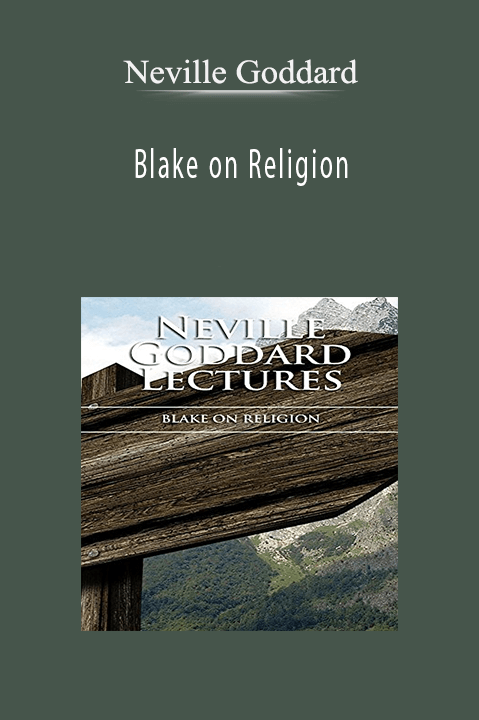
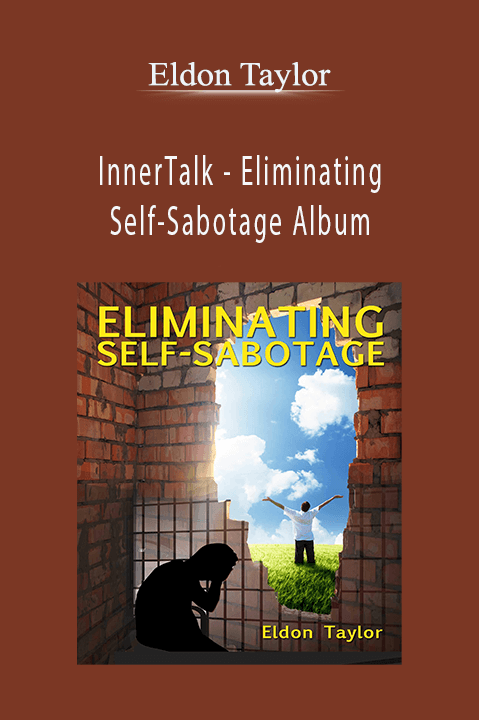


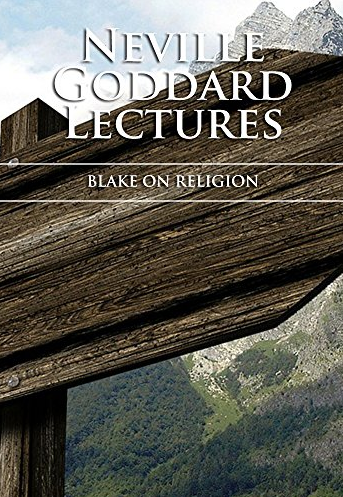
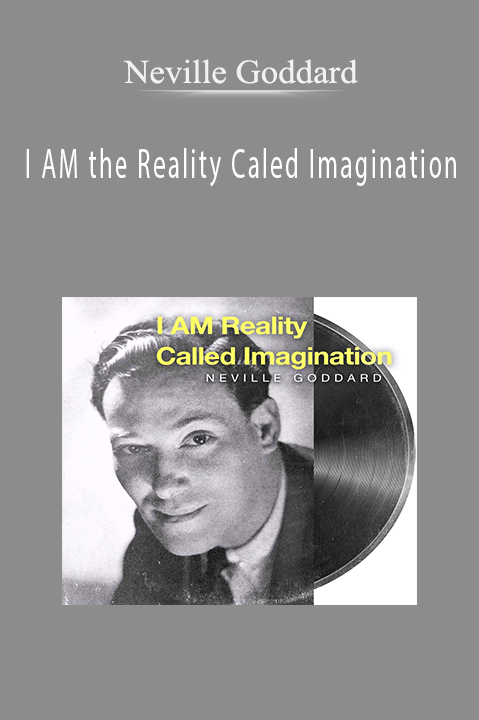
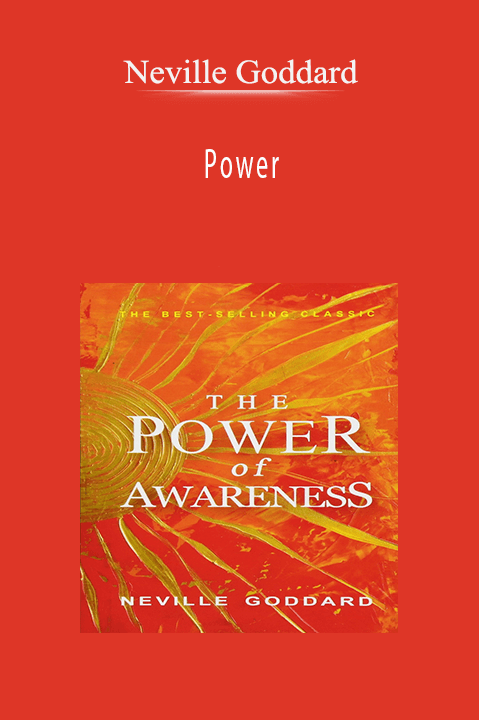
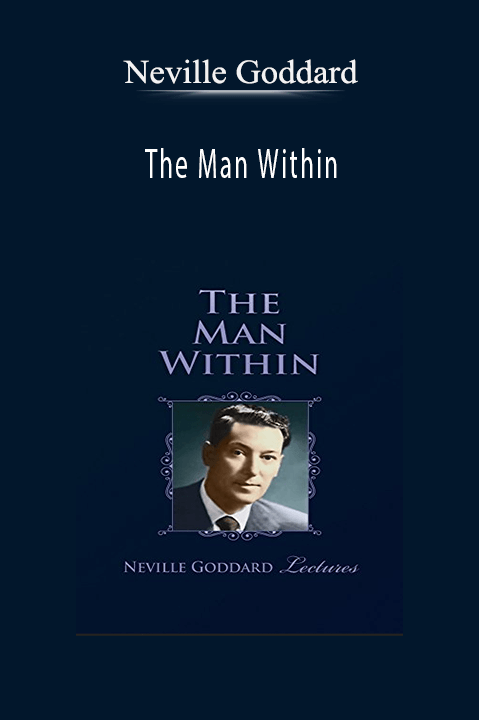
9 reviews for Blake on Religion – Neville Goddard
There are no reviews yet.